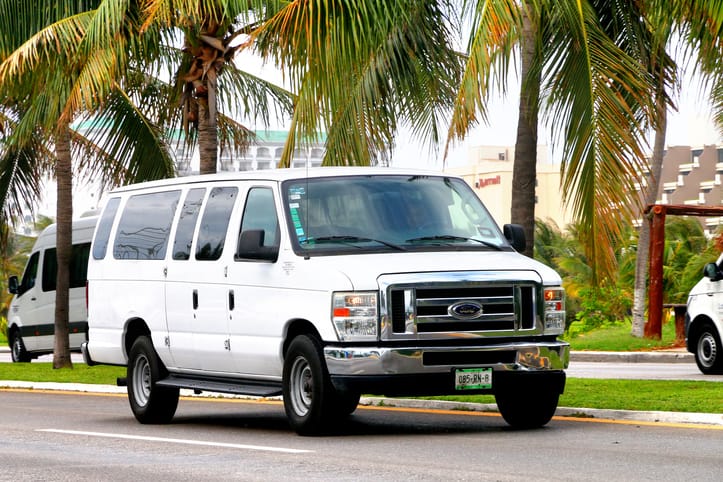The Ford Econoline Wagon: A Workhorse with a Legacy

The Ford Econoline Wagon, also known as the Ford E-Series or Club Wagon, holds a unique place in automotive history. Over its impressive four-generation run from 1961 to 2014, it carved a reputation as a reliable and versatile workhorse, catering to families, businesses, and adventurers alike. This article delves into the history, features, and lasting impact of this iconic vehicle.
From Panel Van to Family Hauler: The Early Years (1961-1991)
The Econoline story begins in 1961 as a replacement for the Ford F-Series panel van. Offered in three chassis lengths (E-100, E-200, and E-300), it provided a more functional and spacious cargo solution. However, it wasn't long before Ford recognized the potential for a passenger version. In 1964, the Econoline Wagon was born, featuring windows, seating configurations for multiple passengers, and a focus on comfort.
These early Econoline Wagons were known for their durability and utilitarian nature. While not exactly known for sleek designs, their boxy shape offered exceptional cargo space, making them ideal for large families or groups. Throughout the 70s and 80s, the Econoline Wagon received incremental upgrades, including stronger engines, improved fuel efficiency (though always a challenge for such a large vehicle), and more comfortable interiors.
The Redesign: A Modernized Workhorse (1992-2008)
For the 1992 model year, Ford implemented a significant redesign of the Econoline/Club Wagon (Club Wagon being the passenger van designation). The chassis remained largely the same, but the body and interior underwent a comprehensive overhaul. The boxy look was softened with a more rounded design, and the interior received a much-needed refresh, with improved ergonomics and more comfortable seating.
This generation also saw the introduction of features like anti-lock brakes, airbags, and optional all-wheel drive, enhancing safety and performance. The engine options expanded as well, offering V6 and V8 choices for better power and towing capacity.
Specialization and Swan Song (2009-2014)
As the 21st century dawned, the minivan segment boomed, offering families a more car-like experience. The Econoline Wagon, however, found a niche market. Businesses favored its cargo capacity and durability for work crews and mobile operations. Customization options flourished, with companies offering conversions for everything from limousines to ambulances.
Ford continued to produce the Econoline Wagon throughout the 2000s, with minimal changes. The focus shifted towards commercial applications, with features like heavy-duty suspensions and uprated electrical systems becoming more prominent. Production finally ended in 2014, with the Ford Transit taking over the mantle of the full-size van.
The Legacy of the Econoline Wagon
The Ford Econoline Wagon leaves behind a rich legacy. It served countless families, businesses, and adventurers for over five decades. Its strengths were its simplicity, durability, and unmatched cargo space. While not known for its fuel efficiency or luxurious features, it offered a practical and dependable solution for those who needed a no-nonsense vehicle.
The Econoline Wagon also fostered a thriving aftermarket industry. Conversion companies transformed these vans into everything from luxurious campers to mobile offices. This aftermarket support continues today, making these vans a popular choice for budget-minded adventurers and vanlifers seeking a reliable platform for their off-grid adventures.
Looking Forward: A Potential Electric Future?
The story of the Econoline Wagon might not be over entirely. With the growing demand for electric vehicles, rumors have swirled about a potential electric Ford E-Series. While Ford has not confirmed these rumors, the idea of a zero-emission full-size electric van holds significant appeal for businesses and environmentally conscious adventurers.
Whether an electric Econoline Wagon materializes or not, the original leaves behind an undeniable mark. It was a vehicle built for purpose, a testament to function over form. For those who needed a spacious, reliable, and endlessly customizable van, the Ford Econoline Wagon was, and to a certain extent, still is, an unbeatable choice.
